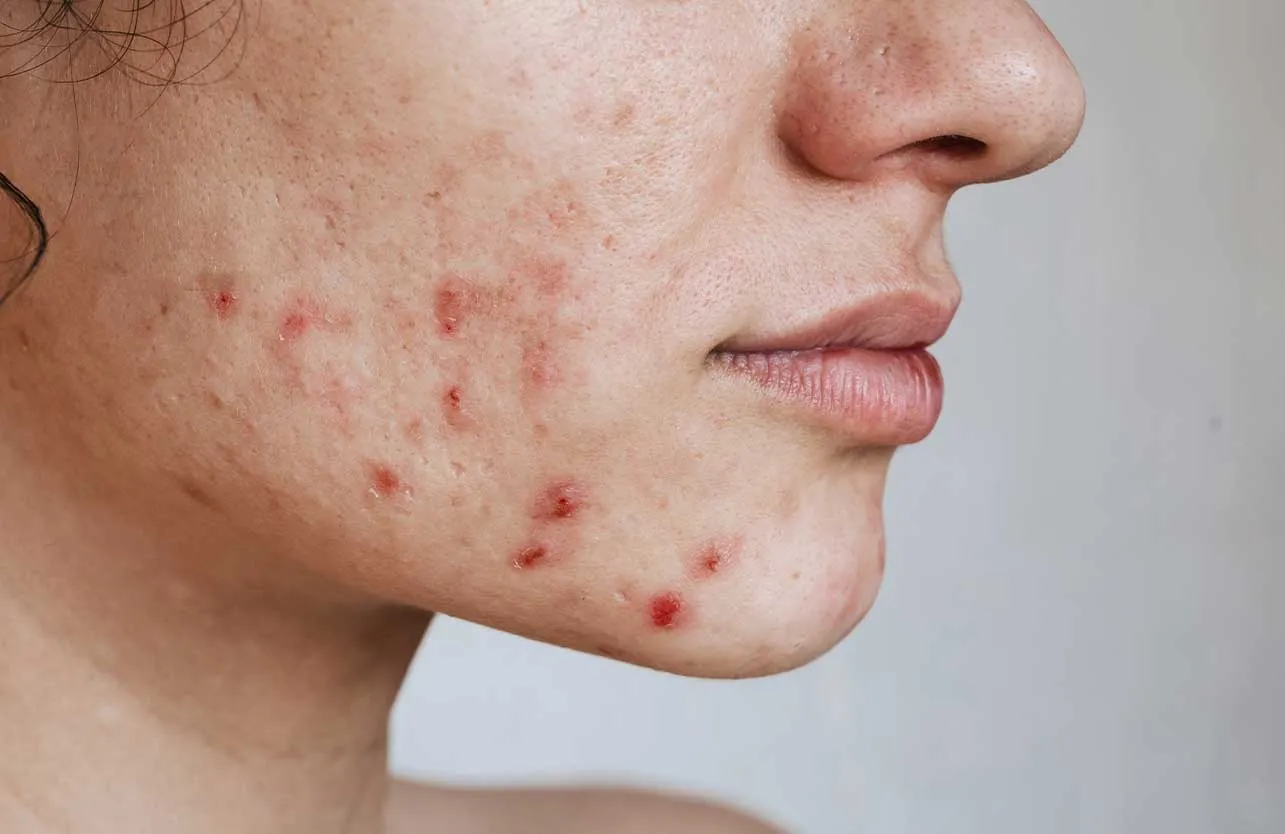Side Effects of Medications Used in Acne Treatment
What Types of Medications Are Used to Treat Acne?
Acne treatment is typically divided into two main categories based on severity:
Topical Treatments (Applied to the Skin)
- Benzoyl peroxide
- Retinoids (tretinoin, adapalene, tazarotene)
- Antibiotics (clindamycin, erythromycin)
- Azelaic acid
- Salicylic acid
Systemic Treatments (Taken Orally)
- Oral antibiotics (doxycycline, minocycline, azithromycin)
- Isotretinoin (Accutane®)
- Hormonal therapies (birth control pills, anti-androgens like spironolactone)
Common Side Effects of Topical Acne Medications
1. Topical Retinoids (Tretinoin, Adapalene, Tazarotene)
Common side effects:
- Dryness and peeling
- Redness and burning sensation
- Photosensitivity (sun sensitivity)
Tip: Start every other night with a moisturizer. Always use SPF 50+ sunscreen during the day.
2. Benzoyl Peroxide
Common side effects:
- Irritation, dryness, flaking
- Can bleach clothing or towels
- Rare allergic contact dermatitis
Tip: Apply in the evening and rinse in the morning. Begin with a low concentration.
3. Topical Antibiotics (Clindamycin, Erythromycin)
Common side effects:
- Dryness and mild itching
- Risk of bacterial resistance with long-term use
Tip: Use in combination with benzoyl peroxide or retinoids to prevent resistance.
4. Azelaic Acid & Salicylic Acid
Common side effects:
- Tingling or slight burning
- Occasional lightening of skin tone (rare)
Safe during pregnancy
Side Effects of Oral Acne Medications
1. Oral Antibiotics (Doxycycline, Minocycline)
Common side effects:
- Nausea, digestive upset
- Sun sensitivity (especially doxycycline)
- Dizziness (especially minocycline)
- Antibiotic resistance
- Yeast infections (in women)
Tip: Always take with food. Avoid long-term use beyond 3–6 months.
2. Isotretinoin (Accutane®)
A powerful treatment with serious side effect potential.
Common side effects:
- Dry lips and skin
- Nosebleeds
- Eye dryness
- Joint or muscle aches
Serious risks (require medical monitoring):
- Liver enzyme elevation
- Increased cholesterol or triglycerides
- Mood changes, depression, anxiety
- Birth defects if taken during pregnancy
Requires monthly blood tests and dual contraception for women of childbearing age.
3. Hormonal Treatments (Birth Control Pills, Spironolactone)
Common side effects:
- Headaches, nausea
- Menstrual irregularities
- Breast tenderness
- Rare risk of blood clots
Tip: Anti-androgen therapy is particularly helpful for women with PCOS-related acne.
Managing Side Effects: Best Practices
- Dryness & Irritation: Use gentle cleansers + hydrating moisturizers
- Photosensitivity: Daily broad-spectrum SPF 50+ sunscreen
- GI Upset from Antibiotics: Take with meals
- Mood Monitoring: Particularly with isotretinoin users
- Blood Work: Required for isotretinoin and hormonal therapies
Why Dermatological Supervision Is Essential
Many acne medications can cause serious or persistent side effects. For this reason, personalized treatment planning, dose adjustment, and close follow-up by a board-certified dermatologist is crucial.
Self-medication or misuse increases the risk of complications and reduces treatment effectiveness.

